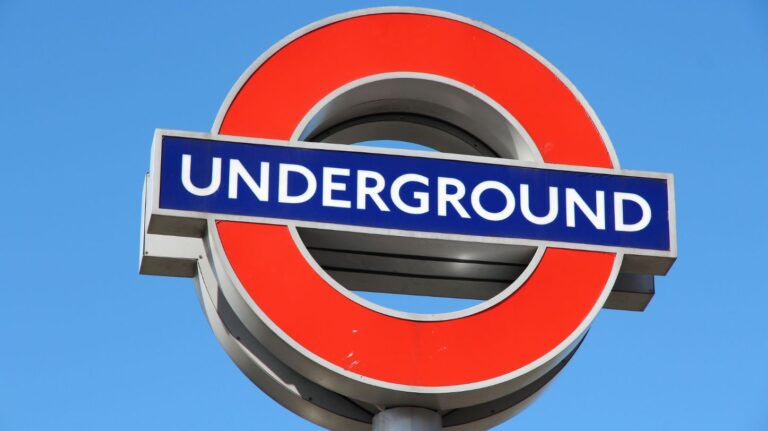The UK government has agreed to a £1.6bn bailout package for Transport for London (TfL) to keep tube and bus services running until October 2020.
The deal breaks down as £1.1bn in cash and a £505m loan.
The government has made a number of demands in return for the funding, including the return of 100% tube services, fare increases from January 2021, reintroduction of fares on buses and reinstatement of the congestion charge.
Another condition is that government officials will sit on TfL board meetings and that regular financial reports will be sent to the Department for Transport.
The government has also secured a commitment to run its ‘Stay Alert’ advertisements instead of the mayor’s ‘Stay at Home’ messages.
London’s transport commissioner Mike Brown welcomed the government support, which he said would help it to get London moving and working again, “safely and sustainably”.
“London’s transport network is absolutely fundamental to the economic, social and environmental health of the capital,” said Brown.
“Throughout the pandemic, transport workers have played a heroic role in the response to the virus – ensuring NHS and care staff have been able to get to work and save lives.”
However, Khan described the deal as “a sticking plaster”, and claimed he “had no choice but to accept it” due to the catastrophic impact the pandemic has had on TfL’s finances.
“I want to be completely honest and upfront with Londoners – this is not the deal I wanted,” said Kahn, “But it was the only deal the government put on the table and I had no choice but to accept it to keep the tubes and buses running.
London’s Underground network saw a 95% decline in passenger numbers as a result of coronavirus lockdown, while bus usage dropped by 85%, causing a 90% fall in income.
Brown explained: “We have been operating up to 70% of peak tube services and over 80% of bus services with many of our staff ill, shielding or in self isolation”
From Monday, TfL aims to run around 85% of buses, 75% of tubes, restore the Circle line and re-open some of the 37 closed stations.
Brown said that, to maintain social distancing wherever possible, the transport network needs to operate differently during this extraordinary period.
“In line with advice from the government and mayor we are encouraging people who can work from home to continue to do so to enable the people who must travel to do so safely.
“We are asking everyone to try and avoid the busiest times to support social distancing wherever possible, to wear non-medical face coverings when they do need to use public transport, and to walk and cycle whenever possible.”
TfL had been in talks with ministers for several weeks over a grant, as it requires £3.2bn to balance its proposed emergency budget for 2020/21.
Before the pandemic, TfL had cash reserves of £2.2bn, well above the two months’ operating costs amounting to £1.2bn that it is legally required to hold.
However, the authority was said to be hours away from hitting those limits imposed under the Local Government Act.
At yesterday’s Downing Street press briefing, transport secretary Grant Shapps indicated that tube and bus fares in London would rise as part of a coronavirus government bailout.
Khan has frozen single fares on the London Underground, buses, DLR and trams since he became mayor in May 2016.
But speaking at the briefing, Shapps said it was “very important we don’t end up in a situation where people from outside the capital are unfairly carrying the burden”.
He warned that consistent fare freezes mean “more money isn’t going into the system”, stating: “You can’t then have an unfair settlement, where other British taxpayers are effectively bailing out the system.”
In separate revenue-raising measures, the Freedom Pass giving free travel for older Londoners will be stopped from use during “peak hours”, while there will also be a temporary suspension of free travel for under 18s. However, special arrangements will be made to ensure children eligible under national legislation can still travel to school for free.
It means four million passengers a day will face price increases of 1% above the Retail Prices Index, the same formula that has delivered national rail fare rises.
Khan criticised the decision, claiming “the government is, in effect, making ordinary Londoners pay the cost for doing the right thing on Covid-19”, before warning that “the old model for funding public transport in London simply does not work in this new reality”.
“Fares income will not cover the cost of running services while so few people can safely use public transport,” said Khan.
“Over the next few months we will have to negotiate a new funding model with government – which will involve either permanent funding from government or giving London more control over key taxes so we can pay for it ourselves – or a combination of both.”
Until yesterday, TfL had been using its cash reserves to meet the £600m monthly bill of operating services. It also furloughed 7,000 workers – 25% of its workforce – last month in order to cut costs.
Brown added: “Enormous challenges remain, including agreeing longer term sustainable funding for transport in the capital.
“In the meantime, we will continue to do everything in our power to help deliver a successful recovery for our great city.”
Want to read more stories like this?
https://www.cittimagazine.co.uk/tfl-postpones-enforcement-of-tougher-safety-and-emissions-schemes-by-four-months/
https://www.cittimagazine.co.uk/walking-and-cycling-at-heart-of-london-transformation-plan/





